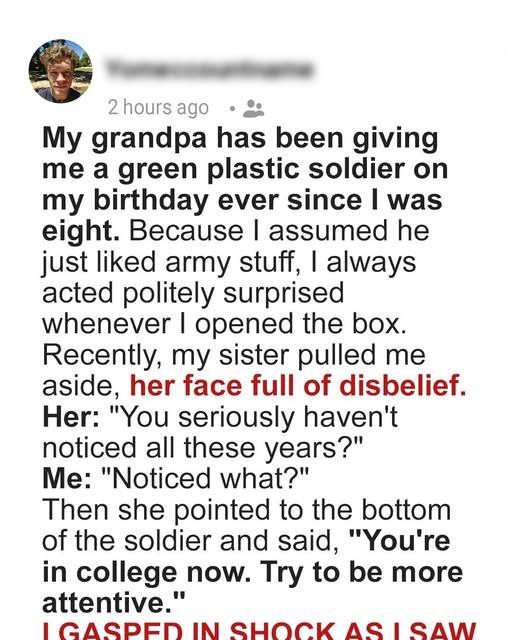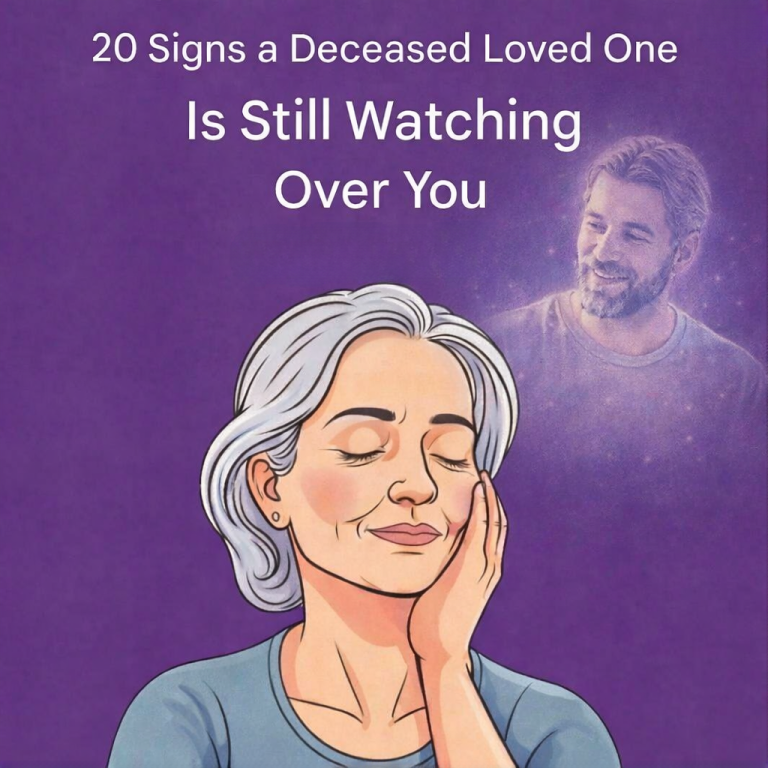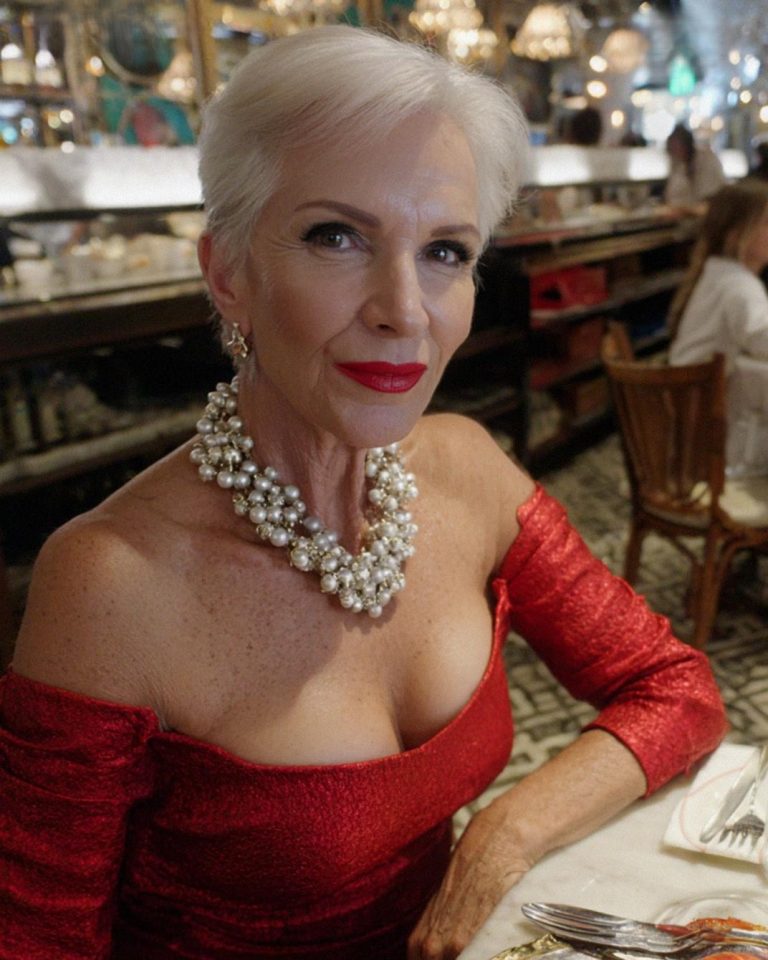
When I was a kid, my birthdays were simple. Balloons, a cake my mom baked, maybe a toy I had been begging for all year. But every year, without fail, one gift stood out.
It came from my grandfather.
He would hand me a small wrapped box, neat and precise, just like the man himself. Inside, every single year, was the same thing: a little green plastic soldier.
At first, I didn’t think much of it. I was eight years old, after all, and kids that age don’t question gifts. I assumed Grandpa just liked army stuff—he was a veteran, after all—and I figured this was his way of sharing a piece of himself with me. So I did what polite grandkids do: I smiled, said thank you, and tucked the soldier away in a drawer.
Year after year, the tradition continued. Birthdays came and went, and so did the soldiers. By the time I was in high school, I had a whole box of them. Still, I never thought too hard about it. They were just plastic toys.
Or so I thought.
Also Read : The Buzz Behind the 2-Tablespoon Remedy
The Secret Beneath the Soldiers
It wasn’t until recently that the truth came out. On my last birthday, after Grandpa gave me yet another green soldier, my sister pulled me aside. Her face was pale, her eyes wide.
“You seriously haven’t noticed all these years?” she asked.
“Noticed what?” I laughed, half-confused, half-annoyed.
She snatched the soldier from my hand, flipped it over, and pressed it into my palm. “Look.”
And that’s when I saw it.
At the bottom of the soldier, etched carefully into the plastic base, were tiny words. Words I had never seen before. My heart skipped a beat as I squinted to read them:
“You’re in college now. Try to be more attentive.”
I gasped.
How many years had I been receiving these soldiers without realizing they were more than toys?
The Messages I Never Saw
That night, I ran to my room and pulled out the old box. My hands shook as I lined up every single soldier on my desk. One by one, I flipped them over. And with every new discovery, my throat tightened.
The first one, from when I was eight, read: “Be brave, little man.”
The next year: “Always protect your sister.”
Another: “Stand tall, even when you feel small.”
Some were short and simple: “Don’t lie.” “Work hard.” “Be kind, even when it’s hard.”
Others carried weight I hadn’t realized I needed: “The world is tough, but so are you.” “Never forget where you come from.”
And finally, on the most recent soldier—the one that had finally caught my attention—were the words that broke me:
“I’m proud of the man you’re becoming.”
More Than Plastic
I sat there for hours, tears streaming down my face, holding those cheap little figures like they were the most valuable treasures on earth.
My grandfather was never a man of many words. He didn’t say “I love you” often. He didn’t sit me down for long life lectures. But now I realized—he had been teaching me all along. Quietly. Patiently. Through these green plastic soldiers, he had been passing down his wisdom, his values, his love.
He knew that someday, when I was ready, I would find the messages. And when I did, I’d finally understand.
The Phone Call
That night, I picked up the phone and called him.
When he answered, his familiar steady voice filled my ear. “Hello?”
“Grandpa,” I said, my voice shaking. “I… I finally understand.”
There was a long pause. Then, I heard him chuckle softly.
“Took you long enough, soldier.”
I laughed through the tears. For the first time in my life, I didn’t just feel like his grandson. I felt like his student, his soldier, his legacy.
The Lesson I’ll Carry Forever
Today, those little green soldiers sit on a shelf in my room—not hidden away in a box, but proudly displayed. They’re not just toys anymore. They’re reminders.
Reminders that love doesn’t always come in the form of grand speeches or big gestures. Sometimes, it comes quietly, in small tokens that only reveal their meaning when the time is right.
My grandfather didn’t need to say much. Through a handful of plastic soldiers, he gave me lessons for a lifetime.
And one day, when I have children or grandchildren of my own, I know exactly how I’ll carry on his tradition. Maybe not with plastic soldiers. But with something that reminds them, long after I’m gone:
“I’m proud of the person you’re becoming.”



